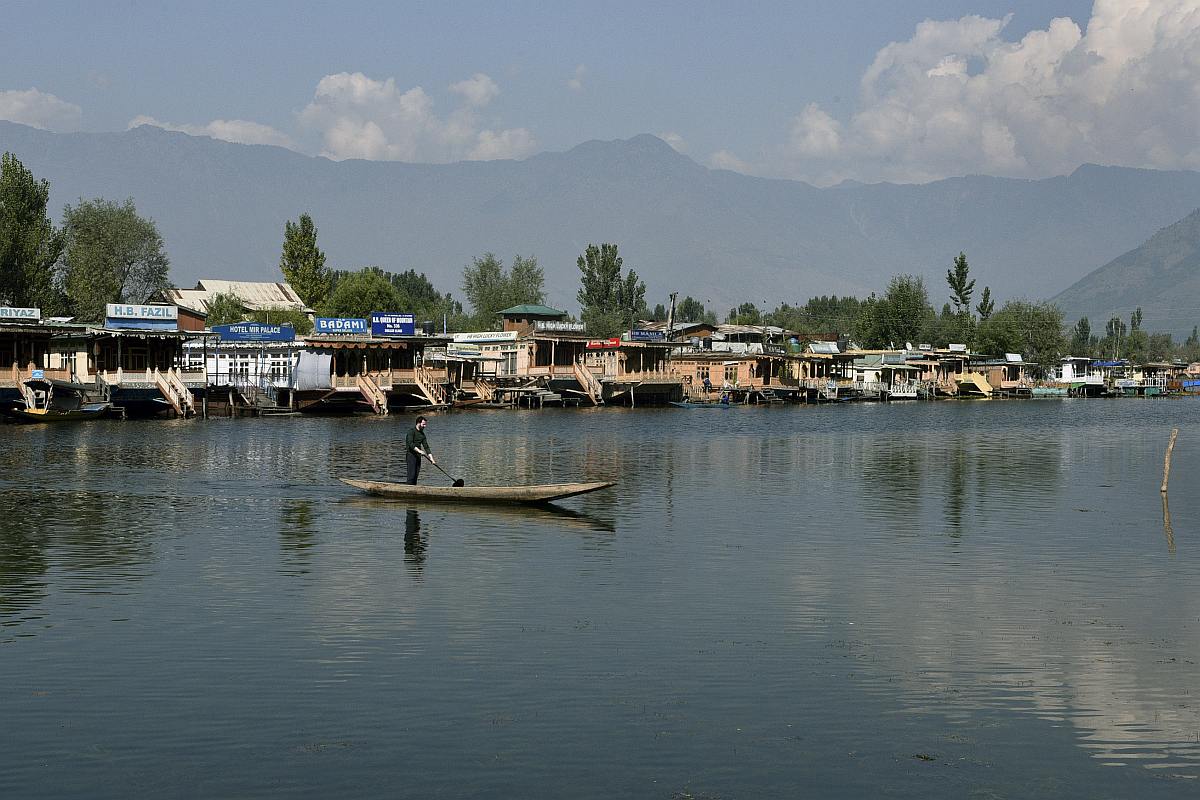Prince Harry declares US home, renounces British residency
Prince Harry officially makes the United States his primary residence, renouncing ties to the UK royal family in a significant move.
The briefing was one of its first by the top Indian diplomat for members of the House foreign affairs committee.

(Photo by HABIB NAQASH / AFP)
After a few US senators and members of House of Representatives urged the Indian government to lift the communication block and release the detained citizens of Kashmir, India’s ambassador to the US Harsh Vardhan Shringla on Wednesday apprised the lawmakers on the situation in the state and the steps taken to maintain peace after abrogation of Article 370.
The briefing was one of its first by the top Indian diplomat for members of the House foreign affairs committee. It comes at a time when there has been an increasing voice questioning Indian government’s methods and uneasiness among lawmakers on the curbs in Kashmir.
Since August 16, there was gradual removal of curbs the most prominent being restoration of post-paid mobile phone services on October 14 for 40 lakh subscribers across networks.
Advertisement
Several Congressmen who were not members of the committee also attended the ambassadorial briefing and a majority of the lawmakers were from the opposition Democratic party. Congressman Ami Bera was the only Indian-American lawmaker present at the briefing.
Shringla and other diplomats from the Indian Embassy here and its consulates in New York, Chicago, Atlanta, Houston and San Francisco, have reached out to hundreds of Congressmen and their aides after the abrogation of the state’s special status.
Since August 5, the government besides restoring post-paid mobile phone services, has opened the state for tourists. On August 17, partial fixed-line telephones were resumed and on September 4, nearly 50,000 landlines were declared operational. Educational institutions are also open, but attendance has been slim.
The government has claimed that over 99 per cent of the area of the state has no restrictions on movement.
Congressman Brad Sherman, who is holding a hearing on human rights in South Asia, in particular, Kashmir, next week, said lawmakers have been hearing from their constituents and that there have been some alarming reports of restrictions, on movement and communications and lack of access.
He briefed lawmakers on the historic context of the Kashmir problem, and the steps being taken by India post August 5. Shringla patiently responded to the questions from lawmakers Lawmakers raised issues of missing persons, restrictions on movement and communication.
Shringla refuted the allegations about missing persons and assured the lawmakers that if any of their constituents cannot reach their families, he will personally ensure that the communication channel between them was established.
On October 8 Senator Warner tweeted his concern for the people of Kashmir as he quoted a New York Times article which went by the headline, “In Kashmir, a Race Against Death, With No Way to Call a Doctor”
While I understand India has legitimate security concerns, I am disturbed by its restrictions on communications and movement within Jammu and Kashmir. I hope India will live up to its democratic principles by allowing freedom of press, information, and political participation. https://t.co/5xlWTE6ANu
— Mark Warner (@MarkWarner) October 8, 2019
“While I understand India has legitimate security concerns, I am disturbed by its restrictions on communications and movement within Jammu and Kashmir,” Senator Warner tweeted.
“I hope India will live up to its democratic principles by allowing freedom of press, information, and political participation,” said the top Democratic Senator from Virginia, who has joined his other Senate colleagues from the Democratic party in calling India to lift restrictions.
In a letter to Secretary Pompeo dated September 11, Pramila Jayapal, the first and the only Indian-American Congresswoman in the House of Representatives, and Congressman James P McGovern said the international media and independent human rights observers must immediately be allowed into Jammu and Kashmir.
“We urge you to work across the Administration to press the Indian Government to immediately end its communications blackout of Kashmir, expedite the process of reviewing and releasing individuals ‘preventatively’ detained, ensure hospitals have access to life-saving medicines and protect the rights of the Kashmiri people to freedom of assembly and worship,” the letter states.
I continue to be deeply concerned about credible reports of a humanitarian crisis in Jammu & Kashmir. Even in complex situations, we look to strong democratic allies like India to uphold basic human rights and due process.
Read my letter with @RepMcGovern to @SecPompeo ⬇️ pic.twitter.com/sVwVwXFyWy
— Rep. Pramila Jayapal (@RepJayapal) September 11, 2019
According to estimates collected separately by Associated Press and Agence France-Presse, between 2,300 and 4,000 people have been detained from Kashmir following the abrogation of Article 370. Officials said recently there had been “a few” detentions, to prevent disorder.
(With inputs from PTI)
Advertisement